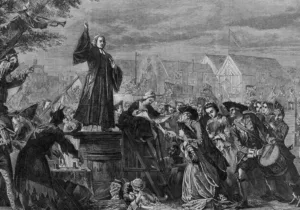Henry Kissinger—the noted American leader, influential diplomat, academic historian and global observer—has done it again with the publication of this outstanding book on leadership. Although Kissinger has played an influential role in American foreign relations as a White House adviser, US Secretary of State and consultant, he has also had enormous impact on Cold War and post-Cold War US foreign policy through his influential books. Among these are Nuclear Weapons and Foreign Policy, The Necessity for Choice, The Troubled Partnership, his trilogy on his years in the Nixon Administration (The White House Years, Years of Upheaval and Years of Renewal), Diplomacy and World Order. His most recent book, which is based on case studies of six postwar political leaders, is an extraordinary analysis of geopolitical leadership based on first-hand knowledge of the individuals he chronicles coupled with deep conceptual knowledge of the preconditions for global order and successful grand strategy.
The six case studies cover: Konrad Adenauer, Charles de Gaulle, Richard Nixon, Anwar Sadat, Lee Kuan Yew and Margaret Thatcher. These leaders mattered, writes Kissinger, “because they transcended the circumstances they inherited and thereby carried their societies to the frontiers of the possible.” Adenauer, West Germany’s Chancellor, guided the moral restoration of Germany after World War II by creating the preconditions for democracy and economic prosperity. Because he courageously accepted his country’s culpability for the war and called for reparations, Kissinger terms his approach the “strategy of humility.”
De Gaulle, who fled his homeland after refusing to be part of the Vichy government, led his people in “the renewal of the soul of France.” He did so by the fortitude of his will, which resulted in the rebuilding of governmental institutions. Since de Gaulle viewed politics as determined by will, not as the art of the possible, Kissinger terms his approach the “strategy of will.”
Although Nixon was forced to resign from office, Kissinger writes appreciatively of his capabilities as a global strategist. In his view, Nixon’s “strategy of equilibrium” helped the United States to end the Vietnam war, open relations with China and transform Middle East politics.
Sadat, a military officer, was thrust into power after the death of Egyptian president Gamel Abdel Nasser. Although he had been influenced by revolutionary and pan-Arab values, once in power he focused on restoring the nation’s self-confidence and regaining land lost in the l967 Six-Day War. Egyptian-Israeli relations were transformed as a result of his leadership, culminating in the l979 bilateral peace treaty.
Lee Kuan Yew’s influence stems from his transformation of Singapore, an impoverished port-city, into a thriving, prosperous and secure nation-state. A core premise of Lee’s strategy of nation-building was “faith his in his people.” Given the country’s ethnic and cultural diversity, Singapore’s development of a strong national identity is a notable political achievement.
Finally, British prime minister Thatcher is important for her leadership in the renewal of Britain’s self-confidence and transformation of the country’s economic policies and institutions. To a significant degree, the renewal of British society was rooted in Thatcher’s values and core convictions. After Argentina invaded the Falkland Islands, Thatcher was staunchly committed to the defense of British national sovereignty by demanding the removal of the invading forces. Because of her implacable advocacy of political self-determination and market-based economics, reinforced by a strong commitment to personal initiative and responsibility, Kissinger terms her approach “the strategy of conviction.”
Kissinger argues that societies require both vision to guide and inspire action and management to preserve and sustain the institutions of society. These two dimensions can be expressed in two types of leaders—the prophet and the statesman. The first, the visionary approach, is concerned with extending the horizons about what is possible. The second seeks to preserve and sustain communities by manipulating circumstances. All leaders profiled in the book relied on a synthesis of both dimensions, although the balance was different for each.
The final chapter, which assesses the prospect for political leadership in the current age, provides an especially valuable assessment of the challenges posed by contemporary culture. Since leadership depends upon education, character, historical judgment and moral values, Kissinger expresses deep concern about the current transformation of culture, made possible by new technologies that mediate how we acquire and process information. Because of the increasing influence of the internet and social media, individuals have greater access to information while societies become less and less cohesive. Consequently, future political leadership will have to contend with dramatically altered societies involving greater polarization and fragmentation.
Some observers have regarded Kissinger as power monist who is concerned only with outcomes. To be sure, Kissinger has always been a political realist who views power as an essential element in both domestic and international politics. But it is a crude misreading of his scholarship to regard Kissinger as purely Machiavellian. In this study, as in other works, it is clear that Kissinger is a principled realist, seeking to balance the claims of power with the claims of morality.
This is an important book for anyone concerned with leadership in private or public institutions, religious or secular organizations. Although Kissinger’s focus is on global political leadership—persons who play a critical role in the stability and prosperity of nations and in the maintenance of global order among states—the book offers an invaluable compendium of insights about the traits and capabilities of successful leaders. Christians seeking to advance human dignity and international peace will profit much from the book’s central claims and insights.






 Sponsor a student for Christianity & National Security 2024
Sponsor a student for Christianity & National Security 2024